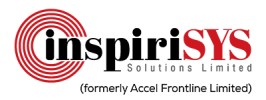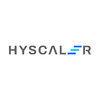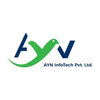3 SelfTech Solutions Jobs

AWS DevOps Engineer
SelfTech Solutions
posted 5mon ago
Job Role Insights
Key skills for the job
Job Description
The DevOps Engineer will be involved in various stages of each products lifespan and should remain abreast of technological advancements to promote efficiency. You should also keep track of customer reviews to enhance marketability. To ensure Success as a DevOps Engineer, you should ensure that all outputs remain safe for public consumption. Ultimately, a top-notch DevOps Engineer will demonstrate excellent leadership skills and the capacity to mentor junior staff.
Education Qualification: B.E/ B.Tech / BCA / MCA / MCM / Diploma
Experience Required: Minimum 5+ years
Skills & Requirements:
- 5+ years of professional experience as a DevOps Engineer.
- Good hands-on experience in Docker containers related AWS services namely:
AWS App Runner , Amazon ECS , Elastic Load Balancing , Auto Scaling , Amazon CloudWatch , Amazon ECR , Amazon EKS , AWS Fargate , AWS CloudFormation , and AWS Lambda .
- Proficient in using Terraform for infrastructure automation.
- Familiarity with GitHub workflows.
- Design, implement, and maintain databases using MSQL , AWS RDS , and NoSQL technologies.
- Develop and optimize SQL queries and database systems.
- Manage cloud infrastructure, ensuring high availability and scalability, especially on AWS RDS .
- Experience in tasks such as build and deployment, load balancing, scaling, and monitoring, launching Docker-based applications.
- Experience in developing engineering applications for a large corporation
- Experience working together with teams from several departments to facilitate the orderly execution of a proposed project plan.
- Demonstrated project development and leadership skills.
- Strong experience with various managed and self-hosted CI/CD tooling.
- Proficient with SCM tools Git.
- Strong experience with Docker containers.
- Experience working in and advocating for agile environments.
- Professional work experience in team building and project organization
- Proficiency with Git and GitHub workflows
- Working knowledge of databases and MySQL
Roles & Responsibilities:
- Containerization Strategy: Collaborate with software development teams and system administrators to define a containerization strategy that aligns with the organizations goals and requirements. Determine which applications and services can benefit from containerization and identify opportunities for optimization.
- Docker Deployment: Design and implement Docker-based solutions, including the creation, deployment, and management of containers. Develop Dockerfiles and Docker Compose files to define container configurations and dependencies. Orchestrate container deployments using container management platforms like Kubernetes.
- Infrastructure Setup: Configure and maintain the Docker infrastructure, including Docker hosts, container registries, and container orchestration platforms. Set up and manage the Docker runtime environment, ensuring scalability, performance, and high availability.
- Security and Compliance: Implement security measures and best practices to protect Docker containers and the underlying infrastructure. Apply access controls, secure network communication, and container isolation techniques. Ensure compliance with industry standards and regulations, such as GDPR or HIPAA, if applicable.
- Continuous Integration/Continuous Deployment (CI/CD): Integrate Docker containers into the CI/CD pipeline to enable automated testing, build, and deployment processes. Collaborate with DevOps teams to optimize the software delivery pipeline and implement container-based workflows.
- Monitoring and Troubleshooting: Monitor the performance and health of Docker containers and associated infrastructure. Use logging and monitoring tools to identify issues, troubleshoot problems, and optimize containerized applications. Implement scalability and load balancing solutions as needed.
- Documentation and Knowledge Sharing: Create and maintain documentation for Docker-related processes, procedures, and best practices. Share knowledge and provide guidance to development teams and stakeholders regarding Docker usage, containerization benefits, and container management.
- Stay Up-to-Date: Keep abreast of the latest Docker and containerization trends, technologies, and best practices. Attend conferences, participate in webinars, and engage with the Docker community to stay informed about advancements in containerization technology.
Employment Type: Full Time, Permanent
Read full job descriptionPrepare for AWS Devops Engineer roles with real interview advice
What people at SelfTech Solutions are saying
AWS Devops Engineer salary at SelfTech Solutions
reported by
1
employee
with 3
years exp.

₹3.3
L/yr - ₹4.3
L/yr
49%
less
than the average AWS Devops Engineer Salary in India
View more details
What SelfTech Solutions employees are saying about work life
based on 9 employees
Monday to Friday
Day Shift
Similar Jobs for you
Share an Interview

































